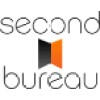Abstract:
The article explores how NFC (Near Field Communication) and RFID (Radio Frequency Identification) technologies are pivotal in advancing sustainability, particularly among European startups. These technologies extend beyond mere product tracking to significantly impact waste management, carbon footprint reduction, and supply chain transparency. By enhancing recycling processes and optimizing resource use, NFC and RFID contribute to higher recycling rates and improved energy efficiency. Examples include Berlin’s tech-driven recycling initiatives and startups like Poland's Bin-e and Germany's CIRCLY, which utilize these technologies for smart waste sorting and lifecycle tracking. Additionally, NFC and RFID facilitate real-time supply chain management, cutting excess inventory and energy use, thus lowering carbon emissions. They also offer consumer transparency, as seen in companies like CaféDirect, which allows consumers to access detailed product journeys. These technologies foster innovative business models, such as GUTS Tickets' secure ticketing and Vulog's NFC-based car-sharing systems. Despite challenges like high initial costs and technological limitations, engaging with technology providers can help startups successfully integrate these tools. Ultimately, NFC and RFID technologies support sustainability goals, offering a competitive edge and opening new market opportunities by enhancing operational efficiencies and consumer engagement.
As we become more aware of environmental issues, many are curious about how technology can help us be more eco-friendly. NFC and RFID technologies are playing a significant role in sustainability, particularly among European startups. These technologies are not just about tracking products; they are transforming how we handle waste, reduce carbon footprints, and increase supply chain transparency. By examining practical applications, we can see how NFC and RFID are making a tangible difference in waste management and energy efficiency, guiding us towards a sustainable future. Whether it's smarter recycling or improved supply chains, these technologies are crucial in addressing today's environmental challenges within the broader theme of Networking and Communications.
Aligning NFC and RFID with Sustainability Efforts
In the intersection of technology and sustainability, European startups are innovating with an environmental focus. NFC (Near Field Communication) and RFID (Radio Frequency Identification) technologies are instrumental in recycling and waste management initiatives. These tools help reduce waste and carbon emissions, aligning well with global sustainability goals.
Reducing Waste and Improving Recycling
Tracking and Sorting InnovationsIntegrating NFC and RFID into waste systems enhances recycling efforts. These smart tags improve waste tracking and sorting, increasing recycling rates and minimizing waste. Such advancements optimize resource use. For instance, the European Union's Horizon 2020 program supports these technologies to ensure higher purity in recycled materials. In Berlin, tech-driven recycling initiatives, using IoT solutions, bolster the city's commitment to sustainability.
Data-Driven Waste ManagementNFC and RFID technologies transform resource management through detailed data collection. By closely monitoring waste generation and recycling, these technologies improve resource efficiency. Studies in the Journal of Cleaner Production highlight how precise data aids waste management policies. With this data, organizations can refine operations, reduce material waste, and strengthen their circular economy commitment.
Success Stories from European StartupsEuropean startups are pioneering the use of NFC and RFID in waste management. In Poland, Bin-e's smart bins use RFID and AI for automatic waste sorting, enhancing recycling efficiency and reducing contamination. Similarly, Germany's CIRCLY uses RFID for product lifecycle tracking, helping businesses manage recycling. These examples demonstrate the benefits of these technologies in waste management, promoting sustainable practices.
Lowering Carbon Footprints
Optimizing Supply ChainsNFC and RFID are set to transform supply chains by enabling real-time tracking and inventory management. This reduces excess inventory and energy use, thereby lowering carbon emissions. European Commission studies on ICT and energy efficiency show how these technologies lessen logistics' environmental impact. Precise tracking streamlines processes, cutting energy consumption and merging economic and ecological benefits.
Energy Savings in Smart BuildingsUsing NFC and RFID in smart building management offers significant energy savings. Automating systems like lighting and HVAC with real-time occupancy data can reduce energy use by up to 30%, according to the European Commission's Joint Research Centre. This not only cuts costs but also aligns buildings with green standards, significantly reducing carbon footprints.
Facilitating Compliance and ReportingRFID helps companies meet sustainability reporting obligations. With accurate, real-time data, RFID supports adherence to EU carbon reduction targets and compliance standards like the EU Green Deal. This integration helps businesses maintain transparency and accountability, fostering a sustainability culture that appeals to consumers and stakeholders.
Through these applications, NFC and RFID technologies are crucial for a sustainable future. Their roles in waste reduction and carbon footprint lowering are vital for startups aiming to meet environmental standards and optimize efficiency.
Enhancing Product Lifecycle Management
Tracking a product's lifecycle is crucial for efficiency and sustainability. NFC and RFID technologies are key to achieving these goals, enabling detailed tracking and data collection for business optimization.
Tracking and Data Collection
Real-Time Tracking with RFID
RFID revolutionizes inventory management by providing real-time tracking. This minimizes losses and enhances inventory control, reducing excess stock and holding costs. Real-time monitoring allows businesses to respond swiftly to market demands, improving turnover rates. According to Deloitte, companies using RFID in supply chains see reduced logistics costs and increased efficiency. This advancement goes beyond inventory management—pairing with NFC opens up innovative consumer engagement through lifecycle transparency, showing customers their purchases' journeys.
Consumer Transparency with NFC
NFC offers detailed lifecycle information and transparency. With a smartphone tap, consumers access product details, from sourcing to sustainability efforts. This fosters trust and positions businesses as environmentally responsible. Capgemini notes that consumers demand this transparency, prioritizing ethical consumption. In Berlin, openness from NFC solutions enhances customer loyalty and engagement, setting a new standard for consumer interactions in sustainable markets.
Success Stories from European Startups
European startups lead in applying NFC and RFID to enhance product lifecycle management. For instance, Wiliot uses smart labels that integrate RFID and NFC to track conditions like temperature and humidity, improving supply chain transparency and efficiency. These case studies show the benefits of detailed tracking and data collection. By leveraging these tools, businesses enhance operations and lead in sustainable practices, building consumer trust and market success.
Boosting Supply Chain Transparency
NFC and RFID technologies are transforming product tracking from origin to consumer, making ethical sourcing and accountability easier.
Enhancing Visibility
RFID and NFC offer real-time visibility and tracking, ensuring transparency and traceability in supply chains. This supports ethical sourcing and helps companies maintain accountability. With these technologies, businesses can identify sourcing discrepancies. European regulations emphasize transparency, ensuring ethical practices. Platforms like Provenance provide transparency solutions, helping companies demonstrate ethical sourcing commitment by showing consumers detailed product journeys.
European Regulations: A Catalyst for Competitive Advantage
Europe's strict traceability and data protection regulations offer startups a competitive edge. Compliance avoids penalties and establishes businesses as trustworthy. With GDPR and EU traceability guidelines shaping the market, startups embracing transparency can stand out. Aligning with these regulations enhances brand reputation and consumer trust, gaining a market advantage.
Real-World Success Stories
European startups show how NFC and RFID enhance supply chain transparency. CaféDirect uses NFC to give consumers coffee supply chain insights, reinforcing ethical sourcing. Scanning NFC tags provides information about farmers and sustainability efforts. This transparency builds trust and shows the potential for improved supply chain accountability.
Driving Innovation through NFC and RFID
Innovative Applications
NFC and RFID technologies enable startups to explore creative applications beyond traditional uses. They're not just for supply chain management; they enhance customer interactions and smart packaging. For instance, Thinfilm, a Norwegian company, uses NFC smart labels for product packaging interactions via smartphones. This improves user experience and provides consumer behavior data for tailored marketing strategies.
Transformative Business Models
NFC and RFID technologies lead to new business models. GUTS Tickets, a Dutch company, uses NFC for secure, transparent ticketing, combating fraud and enhancing customer experience. This shows how these technologies transform industries, redefining norms and creating market positions.
Future Market Opportunities
NFC and RFID technologies' future potential is immense. Startups can explore untapped areas and capitalize on trends. Vulog, a French company, uses NFC-based car-sharing systems for seamless smartphone vehicle access, streamlining rentals and representing urban mobility shifts. Such applications show NFC and RFID's potential to foster market advantages, encouraging startups to innovate.
Strategic Recommendations for Startups
European startups exploring NFC and RFID benefits should develop strategies aligning with sustainability goals while optimizing supply chains and lifecycle management. These technologies offer operational efficiencies and boost sustainability efforts.
Integration Strategies
Startups should align NFC and RFID integration with sustainability goals. This enhances efficiency and supports environmental responsibilities. A study from MIT highlights RFID streamlining inventory by reducing errors and excess stock. Startups should:
- Identify areas where these technologies can impact, like inventory management and logistics.
- Prioritize systems contributing to waste and carbon emission reduction.
- Use a phased technology rollout, starting with pilot programs to validate effectiveness.
By following these steps, startups can integrate these tools seamlessly, aligning with sustainability without losing efficiency.
Measuring and Communicating Impact
Measuring and communicating NFC and RFID impacts is crucial for engaging stakeholders and showing benefits. Deloitte suggests clear metrics to quantify improvements. Startups should:
- Set objectives on key performance indicators like error reduction and cost savings.
- Use visualization tools for accessible data presentation.
- Update stakeholders with reports on technological impact, ensuring transparency and trust.
These strategies highlight technology integration's positive outcomes and reinforce stakeholder confidence.
Leveraging Competitive Advantage
Incorporating NFC and RFID can give startups a competitive edge by enhancing consumer engagement and optimizing operations. Insights from the World Economic Forum stress these technologies' potential to transform interactions and efficiency. Startups can:
- Use NFC for interactive consumer experiences, providing detailed product information and sustainability efforts.
- Show commitment to innovation and sustainability for differentiation and attracting eco-conscious consumers.
- Adapt and expand technology use to capture new market opportunities.
Strategically leveraging NFC and RFID enhances efficiency and market position, driving growth and loyalty.
Challenges and Considerations
When adopting NFC and RFID technologies, startups face challenges. Understanding these is key to reaping full rewards.
Cost Implications and Technological Limitations
High Initial Investment
Startups face significant initial investments for NFC and RFID infrastructure, including readers, tags, and software. Ongoing expenses like maintenance and training add to the financial burden. However, the European Environment Agency notes that long-term benefits often outweigh initial costs. Efficiency improvements can offset investments through cost savings.
Technological Limitations
Technological challenges like interoperability and data security also arise. Different manufacturers' devices may not integrate well, complicating deployment. Ensuring data security is crucial, as data transmission can be vulnerable. The Journal of Cleaner Production stresses overcoming these barriers for successful adoption. Startups must build robust, secure infrastructure adaptable to evolving standards.
Strategic Solutions Through Collaboration
Engaging with technology providers and experts is essential. Consulting professionals offers tailored solutions for financial and technological hurdles. Collaborating with providers ensures smoother integration. EU digital transformation strategies offer frameworks to navigate challenges. By leveraging expert insights and partnerships, startups can overcome limitations and position for growth.
NFC and RFID technologies are crucial for a sustainable future. By integrating these technologies, startups advance in waste management and energy efficiency, setting examples for responsible innovation. From supply chain optimization to product lifecycle transparency, NFC and RFID help reduce carbon footprints and foster business accountability. These advancements align with environmental goals and offer competitive advantages, opening new market opportunities. These technologies could support sustainability efforts in various aspects of life and business.
You might be interested by these articles:
- IoT Sensor Networks Impact
- NFC and RFID Integration Innovations
- Advancing Connectivity with NFC and RFID





